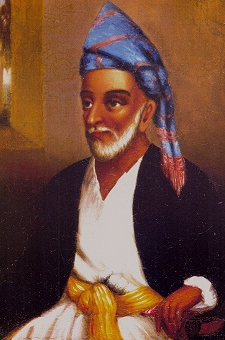Sa’id ibn Sultan
1791–1856
Sultan of Zanzibar
Sa'id ibn Sultan reigned as sultan of Oman and Muscat in the Middle East for some 50 years. During this time he extended his sultanate from Arabia to the east coast of Africa, establishing one of the great trading empires in the region.
Sa'id was the son of the lord of Muscat, who was killed by pirates when Sa'id was 13. One of his cousins seized the throne, but in 1806 Sa'id staged a coup, killing his cousin and becoming sultan. He then formed an alliance with the British to defeat his rivals in Arabia, including the pirates who had killed his father.

In the early 1820s Sa'id turned his attention to the coast of East Africa. Responding to an invitation from the people of the region, he helped overthrow the Portuguese who dominated the area. By 1837 he controlled the coast from the Persian Gulf to MOZAMBIQUE. Three years later Sa'id moved his capital to the island of ZANZIBAR. He established trade routes into the interior, dealing mostly in ivory and slaves. He exported slaves to plantations in Asia until the British, who had abolished the SLAVE TRADE, prohibited the sale of Omani slaves in Asia.
Sa'id then took up other activities, including sugar refining and growing indigo for dye. However, his greatest success was the introduction of cloves to Zanzibar. He also opened Zanzibar to Western nations that helped modernize its economy. By the time of his death, exports from Zanzibar had doubled and the island had become the world's leading producer of cloves. (See also Arabs in Africa, Ivory Trade.)